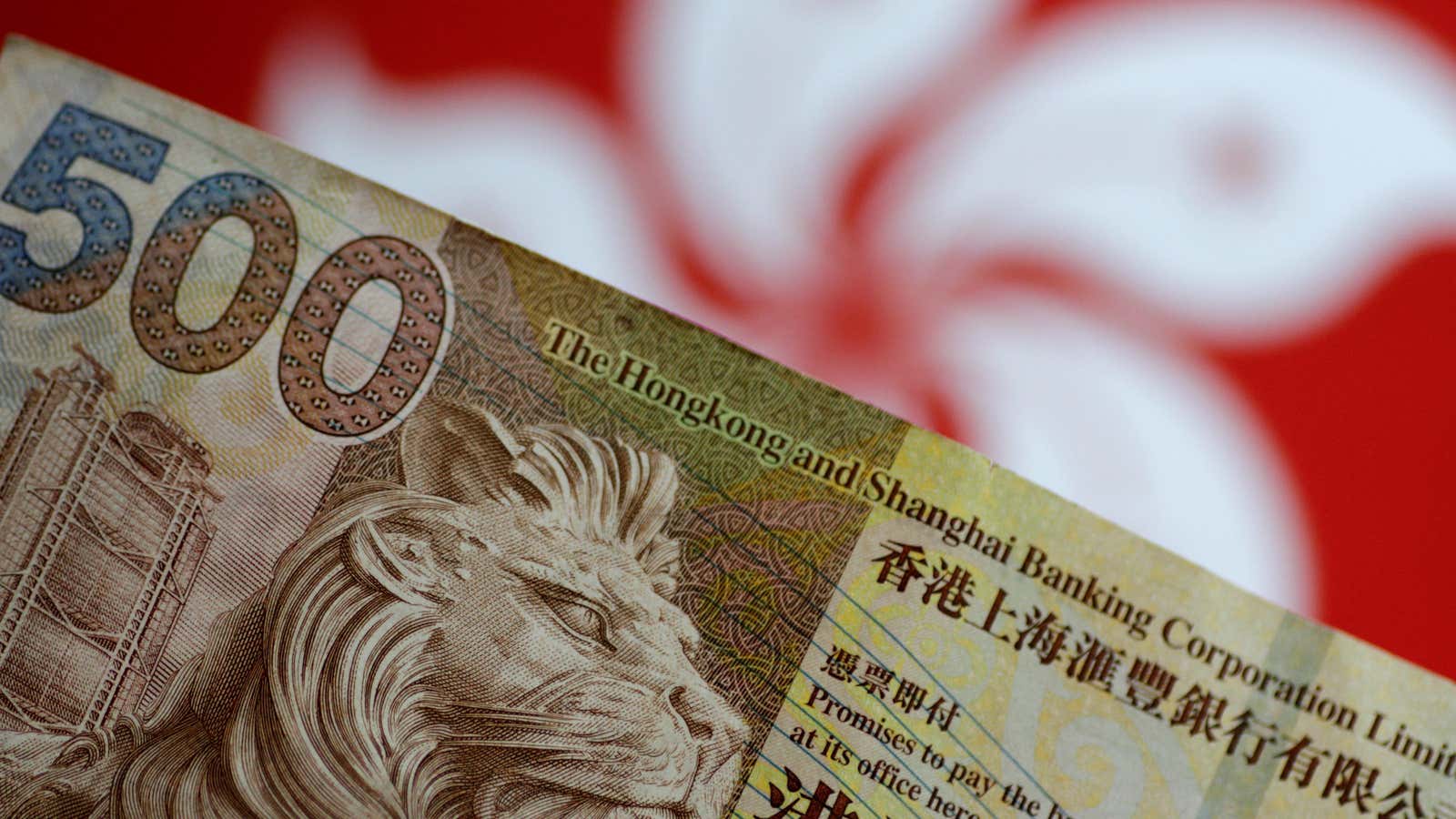Following a record uptick in the number of people exiting the city, Hong Kong has expanded its pandemic stimulus program to include foreigners for the first time. In August, non-permanent residents and foreign students will each be eligible to receive HK$5,000 ($637) from the city.
Over 6.3 million of Hong Kong’s approximately 7 million population received the most recent stimulus round in April, which was limited to permanent residents. The additional upcoming payments to 300,000 foreign residents will cost an extra HK$1 billion, although the government is excluding domestic helpers and people planning to emigrate.
“We are suffering from a brain drain in a variety of industries,” local lawmaker Wendy Hong Wen told the South China Morning Post. “As the city is under post-pandemic reconstruction, we need talents urgently.”
This is the fourth direct stimulus payment to Hong Kong residents since covid-19 emerged. While the first two payments were disbursed in cash, April’s payment and this one are in the form of vouchers that can only be spent at local retailers.
Hong Kong is losing its international appeal
The former British colony has long titled itself “Asia’s world city,” attracting top global talent in finance and law. However, a combination of strict covid curbs, political turmoil, and its high cost of living has caused expatriates and locals alike to re-evaluate. Last year, 89,200 people left Hong Kong, the largest population decrease in six decades. Outflows this year remain at record highs.
Hong Kong adheres to a zero-covid strategy like mainland China, and put its residents under strict lockdown for much of the pandemic. While the most stringent of social distancing rules have been lifted, many are unwilling to go through another city shutdown should there be another flare-up.
At one point, it required travelers to complete three weeks of quarantine, following a similar policy in mainland China. Today, anyone who wants to enter Hong Kong from anywhere outside greater China needs to complete one to two weeks of quarantine.
Political clampdown and high cost of living
Those leaving have also cited the erosion of Hong Kong’s political and legal independence. The passing of the controversial National Security Law in 2020, which grants sweeping powers for the state to arrest anyone for acts interpreted as anti-government, has squashed open protests.
Since then, nearly every single Hong Kong pro-democracy figure has been arrested or fled the city. And in May, the city appointed John Lee, a former police chief who oversaw the crackdown on pro-democracy protesters, in a contrived election in which he took 99% of the vote.
The high cost of living has played a decisive factor, too. This month, the city topped ECA Index’s global ranking of most expensive cities to live in for the third year running. Although the city remains a low-tax haven, expensive rents and notoriously cramped apartments are particularly unappealing should a lockdown return.
